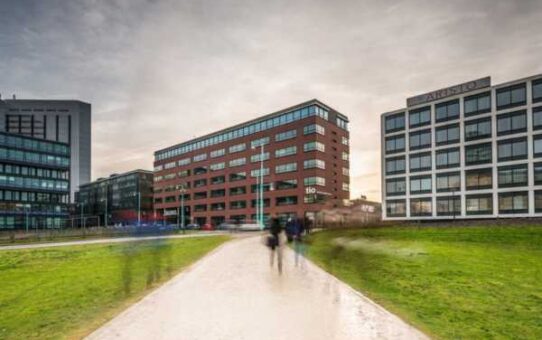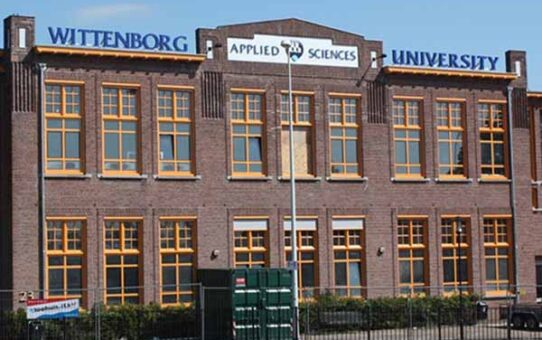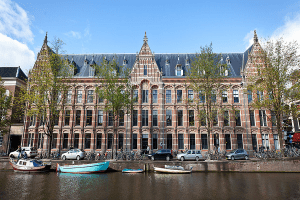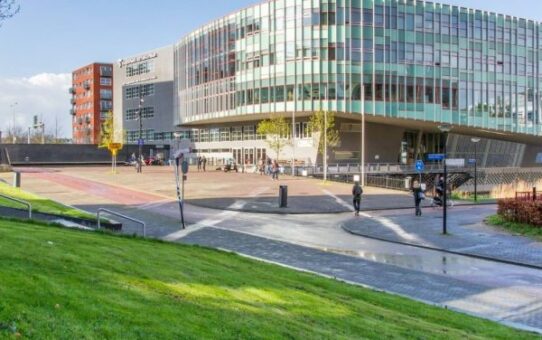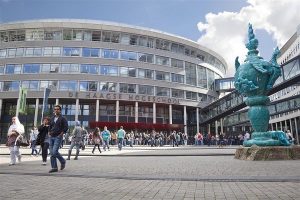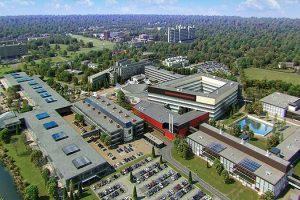Study in Netherlands
Study in Netherlands Universities | Apply & Get Student Visa
The Netherlands, known for its innovative approach to education and vibrant cultural scene, is an increasingly popular study destination for international students. With a rich academic tradition and a wide range of programs taught in English, studying in the Netherlands offers a unique opportunity for personal and academic growth. In this article, we will provide you with a comprehensive guide to studying in the Netherlands, including information on the benefits of studying there, the application process, tuition fees, scholarships, and visa requirements.
Why Study in the Netherlands?
The Netherlands is renowned for its high-quality education system and ranks consistently high in international university rankings. Studying in the Netherlands offers several benefits. Firstly, the country is known for its progressive and inclusive society, making it a welcoming place for international students. Secondly, universities in the Netherlands offer a wide range of English-taught programs, ensuring accessibility for non-Dutch speakers. Thirdly, the Netherlands boasts a strong economy and a thriving job market, providing excellent opportunities for internships and career prospects.
Application Process
The application process for studying in the Netherlands varies depending on the university and program you are applying to. Generally, you will need to submit an application form, academic transcripts, a letter of motivation, letters of recommendation, and proof of English language proficiency. Some universities may also require you to provide a portfolio or take an entrance examination, especially for programs in art, design, or architecture.
Tuition Fees
Tuition fees in the Netherlands differ for EU/EEA students and non-EU/EEA students. EU/EEA students generally pay lower tuition fees, while non-EU/EEA students have higher fees. On average, tuition fees for non-EU/EEA students range from €6,000 to €15,000 per year, depending on the program and university. However, it’s important to note that tuition fees can vary, so it’s advisable to check with your chosen institution for the most accurate information.
Scholarships
There are several scholarships available to support international students studying in the Netherlands. Some of the notable scholarships include the Holland Scholarship, which is funded by the Dutch Ministry of Education, Culture, and Science, and the Erasmus+ program, which offers scholarships for mobility within Europe. Additionally, many Dutch universities have their own scholarship programs specifically for international students. It’s recommended to research and apply for scholarships well in advance, as competition can be high.
Visa Requirements
Non-EU/EEA students planning to study in the Netherlands will need to apply for a student visa or a residence permit. The process involves providing proof of acceptance to a recognized educational institution, proof of financial means to cover living expenses, and purchasing health insurance. It’s essential to check the specific visa requirements and application process through the official Dutch embassy or consulate in your home country.
Studying in the Netherlands offers a rich educational experience, a diverse cultural environment, and promising career prospects. With its renowned universities, English-taught programs, and various scholarship opportunities, the Netherlands has become an attractive destination for international students. If you are considering studying abroad, the Netherlands should certainly be on your list of options.
What is the duration of validity for a student visa in the Netherlands?
The duration of validity for a student visa in the Netherlands depends on several factors, including the length of your study program and whether you’re pursuing a bachelor’s, master’s, or doctoral degree. Here’s a breakdown of the typical durations for different types of study programs:
- Short-Term Programs (Less than 3 Months): If you are enrolled in a short-term study program that lasts less than three months, you might not need a student visa. Instead, you could enter the Netherlands with a Schengen tourist visa.
- Bachelor’s and Master’s Programs (More than 3 Months): For most bachelor’s and master’s programs that last longer than three months, you will need to apply for a Dutch student visa or residence permit. These permits are usually granted for the duration of your study program, plus a little extra time for travel purposes. So, if your program is, for instance, three years, your student visa might be valid for around three years and three months.
- One-Year Programs: If you’re enrolling in a one-year study program, your student visa will typically be valid for the duration of that academic year, along with a short additional period (a few weeks) for travel and preparation.
- Master’s Programs Including an Orientation Year: Some master’s programs in the Netherlands include an orientation year (zoekjaar) that allows international students to stay in the country for up to 12 months after graduation to search for a job or start a business. In this case, your student visa might cover both the duration of your master’s program and the subsequent orientation year.
- Doctoral Programs: Doctoral candidates often receive a different type of residence permit, which is valid for the duration of their PhD program. This permit can be extended if necessary.
Remember that these durations are general guidelines, and there may be variations based on the specific details of your program, your nationality, and any changes in immigration policies. It’s important to check with the Dutch embassy or consulate in your home country or consult the official website of the Dutch Immigration and Naturalization Service (IND) for the most accurate and up-to-date information regarding the duration of validity for your student visa in the Netherlands.
Can I Work With a Dutch Student Visa? write a describe answer
Yes, you can work with a Dutch student visa, but there are certain regulations and limitations that you need to be aware of. The Netherlands allows international students to work part-time alongside their studies under specific conditions. Here’s a detailed explanation of working with a Dutch student visa:
- Part-Time Work: As an international student with a valid Dutch student visa, you are generally allowed to work part-time during your studies. This means you can work for a certain number of hours per week, alongside your academic commitments.
- Working Hours: The maximum number of working hours allowed for international students is typically 16 hours per week during the academic year. However, during official holidays or breaks, such as summer vacation, you may be permitted to work full-time (up to 40 hours per week) without restrictions.
- Work Permit: Most non-EU/EEA students require a work permit (TWV or Tewerkstellingsvergunning) to work in the Netherlands. Your employer must apply for this permit on your behalf. However, for students from certain countries, including EU/EEA countries, Switzerland, and some non-EU/EEA countries, a work permit may not be necessary.
- Restricted Professions: Some professions may have restrictions on international students working in them. For instance, jobs in the healthcare sector or legal professions might require additional qualifications or permissions.
- Impact on Studies: It’s important to prioritize your studies as your main commitment. Working too many hours might affect your academic performance, so strike a balance between work and studies.
- Tax and Social Security: When you work in the Netherlands, you are subject to Dutch tax regulations. If you work more than a certain number of hours, you may also need to contribute to the Dutch social security system.
- Internships: If your program includes a mandatory internship, you can work full-time during the internship period without needing a separate work permit. However, unpaid internships may have different regulations.
- Job Search After Graduation: After completing your studies, you can apply for a residence permit for orientation year (zoekjaar) which allows you to stay in the Netherlands for up to 12 months to search for a job or start a business.
It’s crucial to stay informed about the specific regulations and conditions related to working as an international student in the Netherlands. Regulations might change, and your situation may vary based on your nationality, the type of work, and the duration of your stay. Always consult official sources, such as the Dutch Immigration and Naturalization Service (IND), your university’s international office, or legal experts for the most accurate and up-to-date information regarding working with a Dutch student visa.
Start your Netherland study journey by exploring the guides below.
How to Get Free Student Visa for Netherland
Global
Recognition
Dutch universities are known to be among the best universities in the world, competing with other famous UK and U.S. universities. You could say Netherlands is one of the top non-English speaking countries where you can study abroad
Cost of living
Studying in the Netherlands is not that expensive, compared with other English-speaking countries such as the UK or US. Dutch higher education is subsidized by the government and tuition fees are relatively low.
Diversity of Education
Dutch universities place a strong emphasis on good personal relations between professors and students. Most tutorials and seminars take place in small groups of around 15-30 students.
Scholarships
This scholarship is financed by the Dutch Ministry of Education, Culture and Science as well as several Dutch research universities and universities of applied sciences. The scholarship amounts to € 5,000.
Beautiful flora and fauna
The arrival of tulips in the Netherlands brought new color to the country. We’re now also known for DJs, cheese and soccer (aka football to the rest of the world),
Work Opportunities
The Netherlands isn’t just famous for its windmills and tulips – the country is a world leader in agriculture, beaten only by the USA in terms of food exports.
Universities
Courses To Choose From
Following are some number of courses provided by the Top Universities.
ADVANCED TECHNOLOGY
APPLIED MATHEMATICS
BIOMEDICAL ENGINEERING
BUSINESS INFORMATION TECHNOLOGY
CHEMICAL SCIENCE & ENGINEERING
CIVIL ENGINEERING
COMMUNICATION SCIENCE
CREATIVE TECHNOLOGY
ELECTRICAL ENGINEERING
INDUSTRIAL DESIGN ENGINEERING
HEALTH SCIENCES
INTERNATIONAL BUSINESS ADMINISTRATION
INDUSTRIAL ENGINEERING & MANAGEMENT
MANAGEMENT, SOCIETY & TECHNOLOGY
MECHANICAL ENGINEERING
PSYCHOLOGY
TECHNICAL COMPUTER SCIENCE
TECHNICAL MEDICINE
APPLIED PHYSICS
Accountancy - Full-time
Applied Data Science & Artificial Intelligence - Full-time Subject to accreditation
Business Administration - Part Time Renewed program
Business Administration - Full-time
Public Administration / Government Management - Dual
Architecture - Full-time
Civil Engineering - Full-time
Commercial Economics | Marketing Management - Part Time Renewed program | Also starts February 1st
Commercial Economics | Marketing Management - Full-time
Actuarial Science
Ancient Studies
Archaeology
Business Administration
Business Analytics
Communication Science
Computational Social Science
Cultural Anthropology and Development Sociology
Econometrics
Economics and Business Economics
English Language and Culture
European Studies
Liberal Arts and Sciences (Amsterdam University College)
Linguistics
Literary and Cultural Analysis (Literary Studies)
Media and Culture
Media and Information
Political Science
Politics, Psychology, Law and Economics (PPLE)
Psychology
Sign Language Linguistics (Linguistics)
Sociology
Actuarial Science
Ancient Studies
Archaeology
Business Administration
Business Analytics
Communication Science
Computational Social Science
Cultural Anthropology and Development Sociology
Econometrics
Economics and Business Economics
English Language and Culture
European Studies
Liberal Arts and Sciences (Amsterdam University College)
Linguistics
Literary and Cultural Analysis (Literary Studies)
Media and Culture
Media and Information
Political Science
Politics, Psychology, Law and Economics (PPLE)
Psychology
Sign Language Linguistics (Linguistics)
Sociology
Academic Excellence Track
Mode of studyHonours programme
Accountancy (MSc Accountancy and Control)
Accountancy and Control
Actuarial Science (MSc Actuarial Science and Mathematical Finance)
Actuarial Science and Mathematical Finance
American Studies (History)
Archaeology
Archival and Information Studies (Media Studies)
Art and Performance Research Studies
Art Studies (Arts and Culture)
Artificial Intelligence
Artistic Research (Arts and Culture)
Arts of the Netherlands (Arts and Culture)
Asset Management (MSc Finance)
Banking and Regulation (MSc Finance)
Behavioural Economics and Game Theory (MSc Economics)
Bioinformatics and Systems Biology (joint degree UvA/VU)
Biological Sciences
Biological Sciences: Ecology and Evolution (track)
Biological Sciences: Freshwater & Marine Biology (track)
Biological Sciences: General Biology (track)
Biological Sciences: Green Life Sciences (track)
Biomedical Sciences
Biomedical Sciences: Medical Biology tracks
Biomedical Sciences: Neurobiology tracks
Brain and Cognitive Sciences
Business Administration (MSc)
Business Data Science
Business Economics
Chemistry (joint degree UvA/VU)
Chemistry: Analytical Sciences (track)
Chemistry: Molecular Sciences (track)
Chemistry: Science for Energy and Sustainability (track)
Child Development and Education
Classics and Ancient Civilizations
Communication and Information
Communication Science: Corporate Communication
Communication Science: Entertainment Communication
Communication Science: Persuasive Communication
Communication Science: Political Communication
Communication Science: Research Master's (Academic)
Communication Science: Research Master's (Professional)
Comparative Cultural Analysis (Arts and Culture)
Comparative Literature (Literary Studies)
Comparative Politics (Political Science)
Complexity and Economic Behaviour (Msc Econometrics)
Computational Science (joint degree UvA/VU)
Computer Science (joint degree UvA/VU)
Conflict Resolution and Governance
Conservation and Restoration of Cultural Heritage
Consumer Marketing (MSc Business Administration)
Control (MSc Accountancy and Control)
Corporate Finance (MSc Finance)
Cultural Analysis (Arts and Culture)
Cultural and Social Anthropology
Cultural and Social Anthropology: Applied Anthropology (track)
Cultural and Social Anthropology: Visual Anthropology (track)
Curating Art and Cultures (Heritage Studies)
Data Analytics (MSc Econometrics)
Development Economics (MSc Economics)
Digital Business (MSc Business Administration)
Digital Marketing (MSc Business Administration)
Earth Sciences
Earth Sciences: Environmental Management (track)
Earth Sciences: Future Planet Ecosystem Science (track)
Earth Sciences: Geo-ecological Dynamics (track)
East European Studies (European Studies)
Econometrics
Econometrics (MSc Econometrics)
Economic Geography (Human Geography)
Economics
Economics Research Master (Tinbergen Institute)
English (tracks)
English Literature and Culture (Literary Studies)
Entrepreneurship
Entrepreneurship and Innovation (MSc Business Administration)
Entrepreneurship and Management in the Creative Industries (MSc Business Administration)
Environmental Economics (MSc Economics)
European Competition Law and Regulation (International and European Law)
European Policy (European Studies)
European Politics and External Relations (Political Science)
European Private Law (LLM)
European Union Law (International and European Law)
Film Studies (Media Studies)
Finance
Finance and Real Estate Finance Combination Track (Msc Finance)
Financial Econometrics (Msc Econometrics)
Forensic Science
General Linguistics
Heritage and Memory Studies (Heritage Studies)
Heritage, Memory and Archaeology (Archaeology)
Holocaust and Genocide Studies (History)
Honours programme (MSc Accountancy and Control)
Mode of studyHonours programme
Honours Programme Actuarial Science and Mathematical Finance (Msc Actuarial Science and Mathematical Finance)
Mode of studyHonours programme
Honours Programme Econometrics (Msc Econometrics)
Mode of studyHonours programme
Honours Programme Economics (Msc Economics)
Mode of studyHonours programme
Honours programme Sustainability (Msc Business Administration)
Mode of studyHonours programme
Human Geography
Identity and Integration (European Studies)
Information Law (LLM) - Students can no longer enrol
Information Studies
Information Studies: Data Science (track)
Information Studies: Information Systems (track)
International and Transnational Criminal Law (International Criminal Law)
International Business (MSc Business Administration)
International Criminal Law - Joint Program with Columbia Law School (International Criminal Law)
International Development Studies
International Development Studies
International Dramaturgy (Arts and Culture)
International Finance and Trade (MSc Economics)
International Relations (Political Science)
International Tax Law (Advanced LLM)
International Trade and Investment Law (International and European Law)
Jewish Studies (Middle Eastern Studies)
Journalism, Media and Globalisation (Erasmus Mundus Master's - joint degree)
Language and Society (Linguistics)
Language, Literature and Education
Latin American Studies
Law & Finance (LLM)
Leadership and Management (MSc Business Administration)
Linguistics and Communication
Literary Studies (research)
Literature, Culture and Society (Literary Studies)
Logic
Management of International Business and Trade (MSc Business Administration)
Managerial Economics and Strategy (MSc Business Economics)
Mathematics
Media Studies
Media Studies (Research)
Medical Anthropology and Sociology
Medical Informatics
Monetary Policy and Banking (MSc Economics)
Museum Studies (Heritage Studies)
Music Studies (Arts and Culture)
New Media and Digital Culture (Media Studies)
Pedagogical Sciences: Youth at Risk (track)
Philosophy
Philosophy (research)
Philosophy of the Humanities and the Social Sciences (Philosophy)
Physics and Astronomy (joint degree UvA/VU)
Physics and Astronomy: Advanced Matter and Energy Physics (track)
Physics and Astronomy: Astronomy and Astrophysics (track)
Physics and Astronomy: Biophysics and Biophotonics (track)
Physics and Astronomy: General Physics and Astronomy (track)
Physics and Astronomy: Gravitation, Astro-, and Particle Physics (track)
Physics and Astronomy: Science for Energy and Sustainability (track)
Physics and Astronomy: Theoretical Physics (track)
Political Economy (Political Science)
Political Geography (Human Geography)
Political Science
Political Theory (Political Science)
Preservation and Presentation of the Moving Image (Media Studies)
Psychology (research)
Psychology: Behavioural Data Science (track)
Psychology: Brain & Cognition in Society (track)
Psychology: Coaching & Vitality in Organisations (track)
Psychology: Consultancy & Organisational Development (track)
Psychology: Cultural Psychology (track)
Psychology: Health Promotion & Behaviour Change (track)
Psychology: Human Resource & Career Management (track)
Psychology: Social Influence (track)
Psychology: Sport and Performance Psychology (track)
Public International Law (International and European Law)
Public Policy (MSc Economics)
Public Policy and Governance (Political Science)
Quantitative Finance (MSc Finance)
Quantitative Risk Management (MSc Actuarial Science and Mathematical Finance)
Real Estate Finance (MSc Finance)
Religious Studies (Theology and Religious Studies)
Security and Network Engineering
Social Sciences
Sociology
Software Engineering
Spatial Sustainability Studies (Human Geography)
Spatial Sustainability Studies (Urban and Regional Planning)
Spirituality and Religion (Theology and Religious Studies)
Stochastics and Financial Mathematics
Strategy (MSc Business Administration)
Television and Cross-Media Culture (Media Studies)
Theatre Studies (Arts and Culture)
Urban and Regional Planning
Urban Geography (Human Geography)


